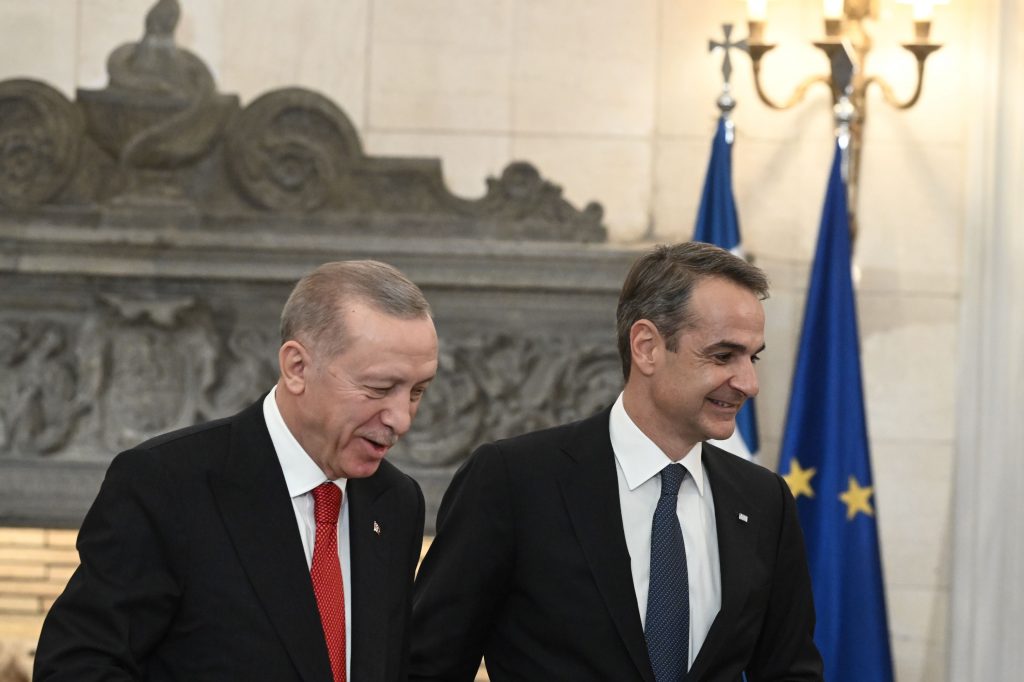A day after President Recep Tayyip Erdogan, accompanied by a delegation of ministers and high-ranking officials, met with PM Kyriakos Mitsotakis in Athens within the framework of the Supreme Council of Cooperation, the Turkish leader hinted at potential cooperation between the two countries in the field of nuclear energy.
Speaking to Turkish media after concluding a five-hour working visit to Athens on Thursday, where he engaged in discussions with Greek Prime Minister Kyriakos Mitsotakis, Erdogan expressed hope that his visit would contribute to strengthening ties among the two NATO allies and erstwhile adversaries.
During his visit, Greece and Turkey agreed on a draft roadmap, ostensibly marking a new era of rapprochement. Addressing reporters on his return flight to Turkey, Erdogan stated that the meetings were conducted in a “very positive” atmosphere.
“Greece and Turkey seek to expand and develop this collaboration not only in energy but in all sectors, including nuclear energy. For example, we can offer Greece the opportunity to benefit from the energy of our nuclear plant to be constructed in Sinope,” according to a statement issued by Erdogan’s office, adding that Mitsotakis was receptive to the idea.
Asked about resolving pending maritime disagreements with Greece, Erdogan said Turkey’s stance on “protecting its rights” in the region remains unchanged, but that a fair distribution of energy resources is possible.
“A comprehensive and fair distribution in the eastern Mediterranean is possible. Once we establish the foundation for this, draw up correct roadmaps and avoid provocations, we can move forward,” he said. Erdogan proposed a regional conference of coastal states as a “proper step” towards shaping this foundation.
The Greek Ministry of Environment and Energy declined to comment on the latest remarks by Erdogan, referring to the details officially released during the summit meeting.
It’s worth noting that a similar proposal had been tabled by Bulgaria about a year and a half ago, when Deputy Prime Minister Asen Vasilev announced talks with Greece for the construction of a new nuclear plant to be jointly exploited with Greece under a 20-year contract, an idea, however, that did not proceed.
During Erdogan’s visit, the two governments inked more than 12 cooperation agreements touching on bilateral trade, energy and education. Additionally, both sides announced a roadmap for future high-level discussions, ones aimed at preventing crises.




